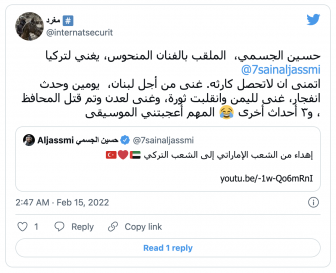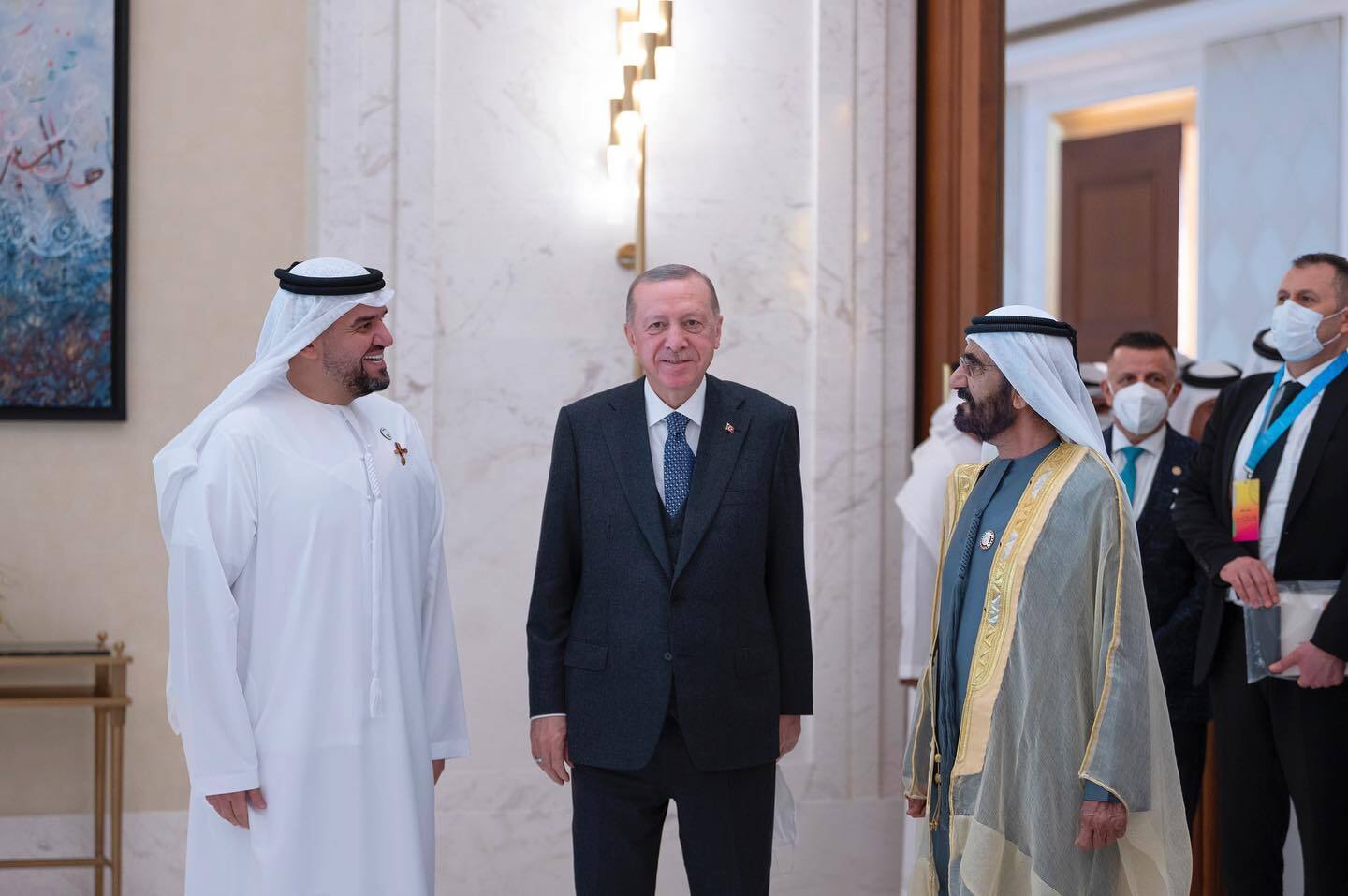In 2017 during the height of the illegal blockade, singer Hussain Al Jassmi was part of a group of Emirati group who sang “Tell Qatar.” The song also included criticism of Turkey and Iran.
“There’s no gratitude or good faith left in Qatar or its leadership, so long as Turkey and Iran are protecting its back,” the lyrics said.
Following the positive shift in relations between the UAE and Turkey, he has now released a song in Turkish. The song Al Jassmi released is dubbed as one of President Recep Tayyip Erdogan’s favorite songs, as he often uses the lyrics in his election celebrations and rallies.
President Erdogan ended his visit to the UAE on Tuesday. The first since 2013 where he received a warm welcome. During the visit Erdogan and Crown Prince Mohammed bin Zayed signed 13 agreements in different sectors including defence, trade, technology, and agriculture. This was followed by significant investment promises from the UAE.
The Emirate was not the only blockading country to release an offensive track. In the same year, Saudi-based music label Rotana released “Teach Qatar”, the track featured some of the most popular Saudi artists.
Read also: Saudi label Rotana deletes anti-Qatar ‘diss track’ following GCC breakthrough
For years, Turkey and the UAE have been on opposing sides of regional conflicts due to deeply conflicting ideologies.
Dubbed an unlucky charm
This label became popular after the Beirut explosion, prior to which Al Jassmi performed “Bahebek Ya Lebnan” (I love you Lebanon), a song by iconic Lebanese singer Fairuz. This lead some internet users into linking Al Jassmi to ‘bad luck’. He was accused of being a ‘jinx’ as the song came a few days before the Beirut explosion.


After the Beirut explosion, the Emirati singer reportedly fell into depression after the wave of criticism that he received. Several public figures, singers, artists, and fans expressed compassion and support for him following the backlash.
Shift in UAE-Turkey relations
The past few months have marked a significant change in Turkish-Emirati relations for a number of political and economic reasons.
In January, Abu Dhabi’s largest investment company, ADQ, pledged $10bn in investments to Turkey. Mohammed bin Zayed paid a visit to Ankara in November last year, the first in a decade. During that visit ADQ and Turkish investment bodies and companies signed memorandums of understanding worth billions of dollars in multiple sectors, including energy, technology and logistics.
Turkey is facing an economic crisis with inflation at a whopping 48.7%. Its national currency, the lira, lost almost half of its value in the last year at 48%.
The UAE is trying to depend less on oil and gas to boost its economy. The gulf country wants to diversify its economic sectors. It has also been pushing to make a come back from the economic losses it suffered due to the Coronavirus pandemic.
Warming ties with Israel
One of the major reasons the two former foes are restoring their relationship is because Turkey wants to mend ties with Israel. In 2020, Turkey threatened to cut ties with the UAE over its normalisation deal with the illegal apartheid state. The Israeli President Isaac Herzog is scheduled for an official visit to Turkey in March.







